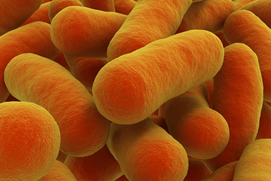Biopolis has a profound understanding of the world of microorganisms that live in our bodies and finds ways to take advantage of them in order to improve our wellbeing. It also solves the problems that arise when the results of a successful laboratory experiment need to be migrated to an industrial scale.
Biopolis is focused on the world of microbes: a world we can’t see but which affects all of us profoundly. As such the company is a prime example of how science can improve our lives. Eleven years ago the Spanish National Research Council, or CSIC (Consejo Superior de Investigaciones Científicas) realized that while it produced very valuable scientific work, the organization was not capable of translating this into tangible products that could be used. The Council understood that it needed to make its work scalable in order to take results from successful laboratory experiments and put them into industrial production. In order to do that it was necessary to, among other things, put the people who were making such discoveries in contact with those who could put these developments into practice.
The capacity to understand the world of microorganisms which all of us have inside our bodies and use this information to improve our health will be one of the main objectives of Biopolis in coming years. Like the characters in ‘X-Men’ but operating in the world of science and technology, this company—which grew out of the CSIC—has a multidisciplinary team that solves the problems arising in these processes.
One possibility could be to take advantage of waste products in order to produce something of value. Experts in microbiology would look for bacteria that could, for example, convert cereal chaff into bioplastics. Afterwards they would pinpoint the microbes that could carry out this process most efficiently, and engineers would then design a manner of producing them on a large scale in order to finally deliver them to a customer.
Another success story from Biopolis is a probiotic (foods with added microorganisms in order to provide a number of health benefits) to fight celiac disease, which is based on a patent from the CSIC.
